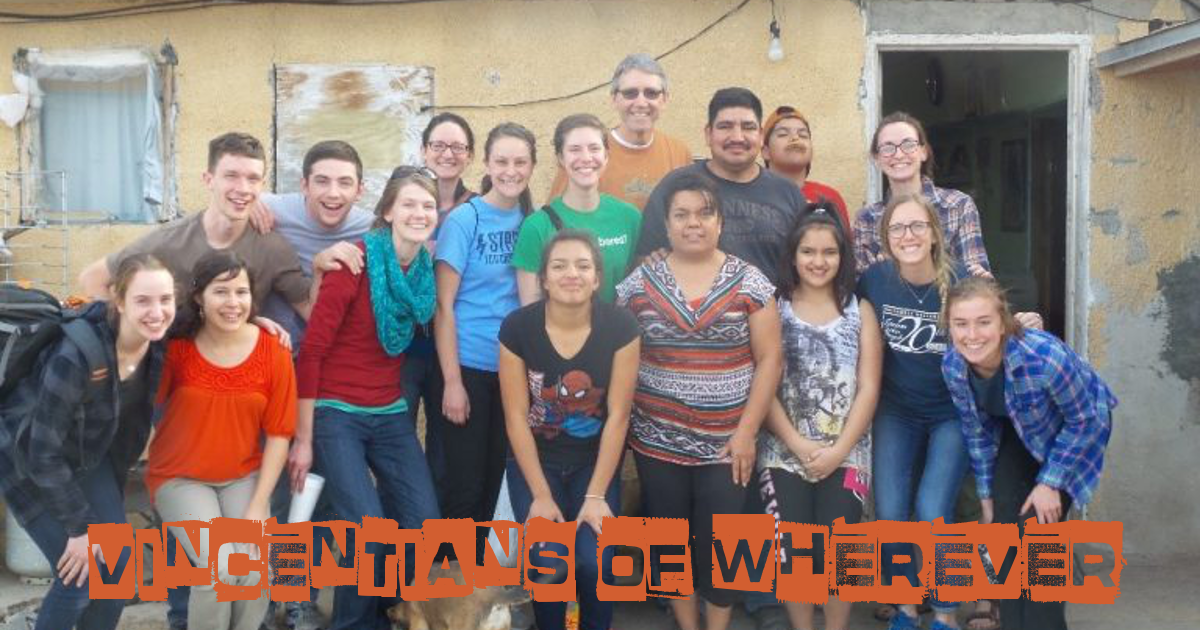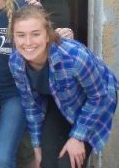I have heard the story of the Good Samaritan countless times: I remember reading it in my Children’s bible with illustrated pictures, seeing the parable come to life in skits and reenactments during retreats, and hearing homilies on the many messages contained in this familiar Gospel story. But a beautiful thing about scripture, or any text for that matter, is that its meaning changes and resonates with you in different ways depending on the where you might find yourself in the present moment and what experiences you currently carry with you.

This past Sunday night, I found myself back in the Basilica of the Sacred Heart on the campus of the University of Notre Dame, holding what seems like 2 or 3 years’ worth of moments after just returning from my year with CVV. With all of those moments in my heart, I heard the Gospel and thought of my road the past year, the people I saw on the side of it, and the ways I have responded.
Fr. Joe Corpora presided for the mass and his message was a powerful one, calling us to think about the reaction of Jesus’ listeners to the fact that it is a Samaritan who shows compassion towards the Jew. A Samaritan! The listeners would have been shocked, confused, and startled that two extremely separate social groups were being brought together. Yet this Samaritan looks, stops, and crosses the road to help the Jew, defying social boundaries and “acceptable” behaviors. Fr. Joe asked us to think of the boundaries and lines we draw today in our society today. I thought of our country’s southern border, the line we have drawn and the fence we have built between “us” and “them,” not unlike the distinctions between Samaritans and Jews. As a country, we seem to have deemed immigrants unworthy of our attention. We see them as different, separate from our established and familiar communities. Is this not the reaction of the priest and the Levite? The similarities are a little unsettling to me.
When we traveled to the border between El Paso, TX and Juarez, Mexico this past February, I began learning about immigration and some of the many issues surrounding it. We visited a courthouse and watched as 5 men who had been caught illegally crossing the border were sentenced to return home to Mexico, to “your country” as the judge put it. We were welcomed into the humble home of an undocumented man who had just been reunited with his family after having tried for two years to cross back into the US where his family now lives. We cooked alongside Carmen, a woman who had entered the US illegally to seek healthcare for her daughter but had to return to Mexico after her 3 sons were deported. We cried with her as we learned that her daughter had died because the hospital in Mexico could not provide the level of care that her daughter needed and had previously been receiving from US hospitals. We visited a Diocesan Migrant and Refugee Services office and learned of the impossible legal battles facing those applying for citizenship and seeking asylum in the United States.
Through this sharing of stories, the meals in humble homes, the tears cried over deceased loved ones, we looked, we stopped, and we crossed the road. We put ourselves in uncomfortable and precarious places. We listened to injustices and witnessed an ugly part of our humanity. But amidst that brutality, the horrific stories and overwhelming challenges, we witnessed an incredible amount of faith and grace. I met passionate leaders who are working for change and have so evidently found their vocation in their work at the border. I heard Carmen speak of her faith in God, still unshaken even after all she has suffered. I saw a family’s pure joy and gratitude at simply all being in the same room together. I beheld so much grace amid the suffering. And that was Fr. Joe’s point, I think. That even in the darkest situations and seemingly godless places on earth, God is present and grace is evident. I witnessed that grace, but only because CVV facilitated this experience and this opportunity to walk across the road, right into the thick of it.
What we found there, when we crossed the road, was not a helpless, broken, beaten Jew but incredible grace and hope despite the wounds. There is still an immense amount of work to be done and so much to address along the border if we are to be true neighbors to everyone. Everyone includes fathers looking for work, undocumented families wanting a better education for their children, a mother seeking better healthcare for her daughter. It’s not enough to just reach out our hands and throw them a Band-Aid. We are called to stop, to look, and to cross the road. We are asked to open ourselves to these genuine encounters with others, no matter how wounded, dirty, or different they may seem. I hope to approach the marginalized people in this world with dignity and humility, free of the mindset that I’m the one who is needed and “helping.” For when I crossed the road this past February with CVV, with no intention except to listen, to learn and to be present, I had the most real encounters possible. It is worth the discomfort and fear that comes from stepping through boundaries, perceptions, and divisions we have constructed in our minds and in our society, for through these authentic encounters, I believe true grace and transformation can be shared.
 Lynne Bauman (CVV21) is a joy-filled, compassionate young woman who dedicated her year at CVV and her big heart to working with kiddos at Mount Saint Vincent’s. She has a fierceness of spirit that manifests in her love for others, music, the Fighting Irish – and a good game of Spikeball!
Lynne Bauman (CVV21) is a joy-filled, compassionate young woman who dedicated her year at CVV and her big heart to working with kiddos at Mount Saint Vincent’s. She has a fierceness of spirit that manifests in her love for others, music, the Fighting Irish – and a good game of Spikeball!
Source: covivo alumni blog







0 Comments